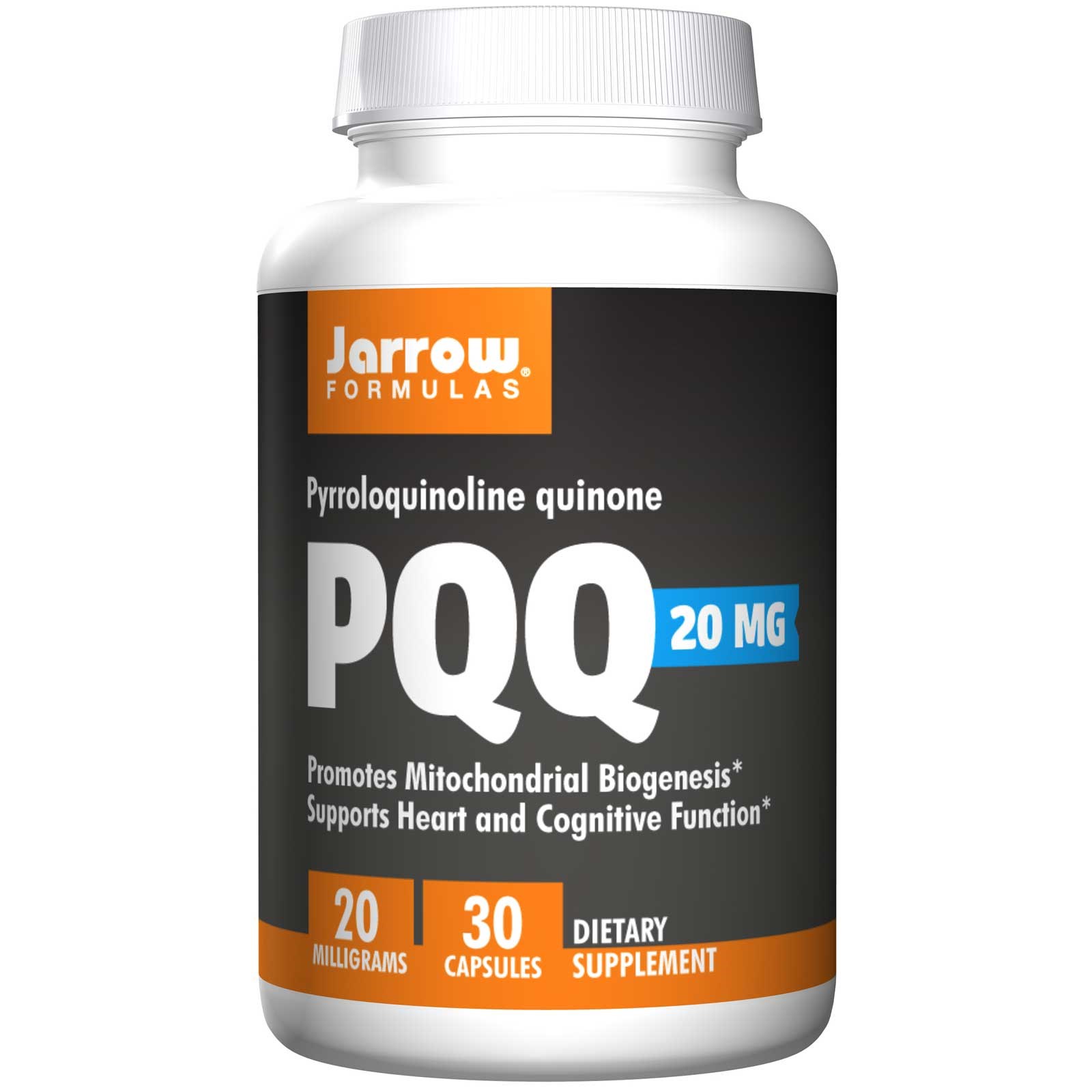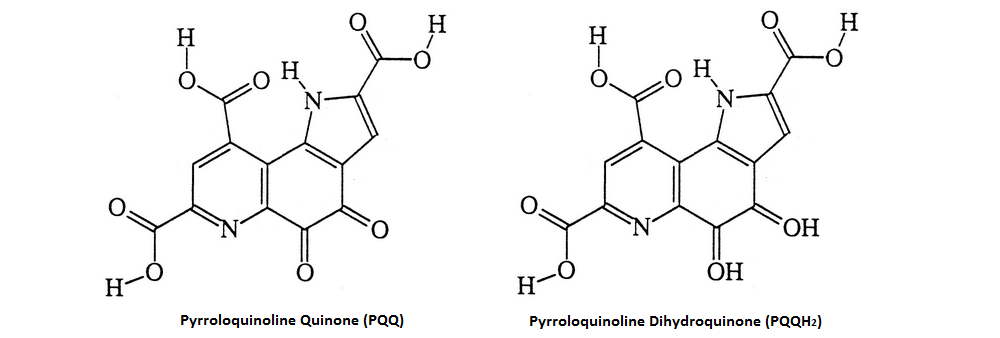Pyrroloquinoline Quinone (PQQ) Review
 PQQ is a small molecule making headlines for its potential anti-aging properties. Find out if PQQ is the real deal today in our guide.
PQQ is a small molecule making headlines for its potential anti-aging properties. Find out if PQQ is the real deal today in our guide.
What is PQQ?
PQQ stands for Pyrroloquinoline Quinone. Since that’s a really long name, we’ll mostly be referring to it as PQQ throughout this article. It’s also sometimes known as “Methoxatin”.
PQQ is a small molecule that appears to boost mitochondrial functioning within the body. The molecule was originally thought to be a vitamin. Today, however, scientists are eagerly studying PQQ for its potential ability to fight against disease, aging, and energy-related medical conditions like CFS and Lyme Disease.
PQQ may sound like some futuristic molecule created in a lab, but it’s not. It’s actually found in trace levels in all plants. Modern supplements, however, aim to purify and extract the molecule to deliver it in exceptionally high dosages.

The molecule itself is considered a “quinone” molecule. Scientists call the molecule’s functionality REDOX, which means it’s capable of neutralizing oxidants within the body (it acts as an antioxidant). After being used by the body, it’s recycled back into an active form. Then, it performs its antioxidant roles again.
Scientists believe that PQQ can go through several thousand cycles before it’s used up and passed as waste out of the body.
There’s one small problem with PQQ: research is still in the extremely early stages. Today, most of the research is being done in vitro (not on living creatures like humans or animals).
Nevertheless, scientists have called PQQ “promising” and believe it could play a significant role in the future of medicine. It’s also proven to be relatively safe in small doses because we eat PQQ in almost all of the plants we eat.
How Does PQQ Work?
We hinted at PQQ’s mechanisms above, but here’s a more scientific explanation provided by a report from USC in 2010:
“PQQ seems to modify oxidation in a cell after binding to some proteins, and this modulatory role it plays can alter the signalling processes that go on in a cell. Due to PQQ being a REDOX agent (capable of both reducing and oxidizing) it is not a pure antioxidant, but it is involved in a cyclical antioxidative cycle with an antioxidant enzyme known as glutathione.”
That’s a long way of saying that PQQ is like a superpowered antioxidant that appears to work as an anti-inflammatory and may have big benefits on the elderly or anyone who wants to reverse the effects of aging.
Possible PQQ Benefits
Animal research on PQQ (which provides us with the closest guess to PQQ’s human benefits) has indicated some of the following benefits of PQQ:
— Anti-inflammatory Effects Could Reduce The Risk Of Disease
— Acts As An Antioxidant To Target Disease-causing Free Radicals Inside The Body
— Appears To Have A Radioprotective Effect
— May Improve Insulin Resistance, Which Could Relieve Some Symptoms Of Diabetes
— Appears To Work As A Growth Factor When Taken As A Dietary Supplement Over A Long Period Of Time
— Boosts Mitochondrial Function, which can boost energy throughout the body because mitochodnria are the “powerhouses” of the cells, which is why some people take PQQ to relieve symptoms of Lyme Disease and Chronic Fatigue Syndrome (CFS)
— Enhance Cognitive Functionality
That last benefit was observed in rats after PQQ was added to their diet. Taking the molecule orally was observed to enhance “peripheral neurogenesis” over a long period of time. Peripheral neurogenesis refers to nerve growth outside the brain.
How to Use PQQ
Virtually no major human studies have been performed with PQQ so far. However, based on current animal research, the appropriate dosages for humans are likely between 20mg and 40mg.
Doses as low as 2mg have been observed to be bioactive, so the molecule may be beneficial even in small amounts.
PQQ actually comes from plants we eat, although it’s only in low doses. As DoctorMurray.com explains, “PQQ has been found in all plant foods analyzed to date.”
Some plant-based foods contain more PQQ than overs. Parsley, green peppers, kiwi fruit, papaya, and tofu are all rich with PQQ, for example.
How to Buy PQQ
PQQ is a relatively unknown supplement and it has not been extensively studied. Nevertheless, certain nutritional supplement manufacturers now sell PQQ supplements.
A company called Life Extension, for example, sells PQQ Caps with BioPQQ. Those capsules come are 10mg and sold in packs of 30 for $18.
Swanson Vitamins also sells a PQQ formula under the name Dr. Derrick DeSilva’s PQQ. That supplement is available in two different potencies: 10mg (priced at $10.99) and 20mg (priced at $19.99).
Both supplements are well-reviewed and claim to be able to treat the symptoms of various medical conditions – especially Lyme Disease, CFS, and other debilitating fatigue-related conditions. Some users report having tried dozens of other fatigue treatments, only to happily discover that PQQ solved their problems more effectively than they thought possible.




















